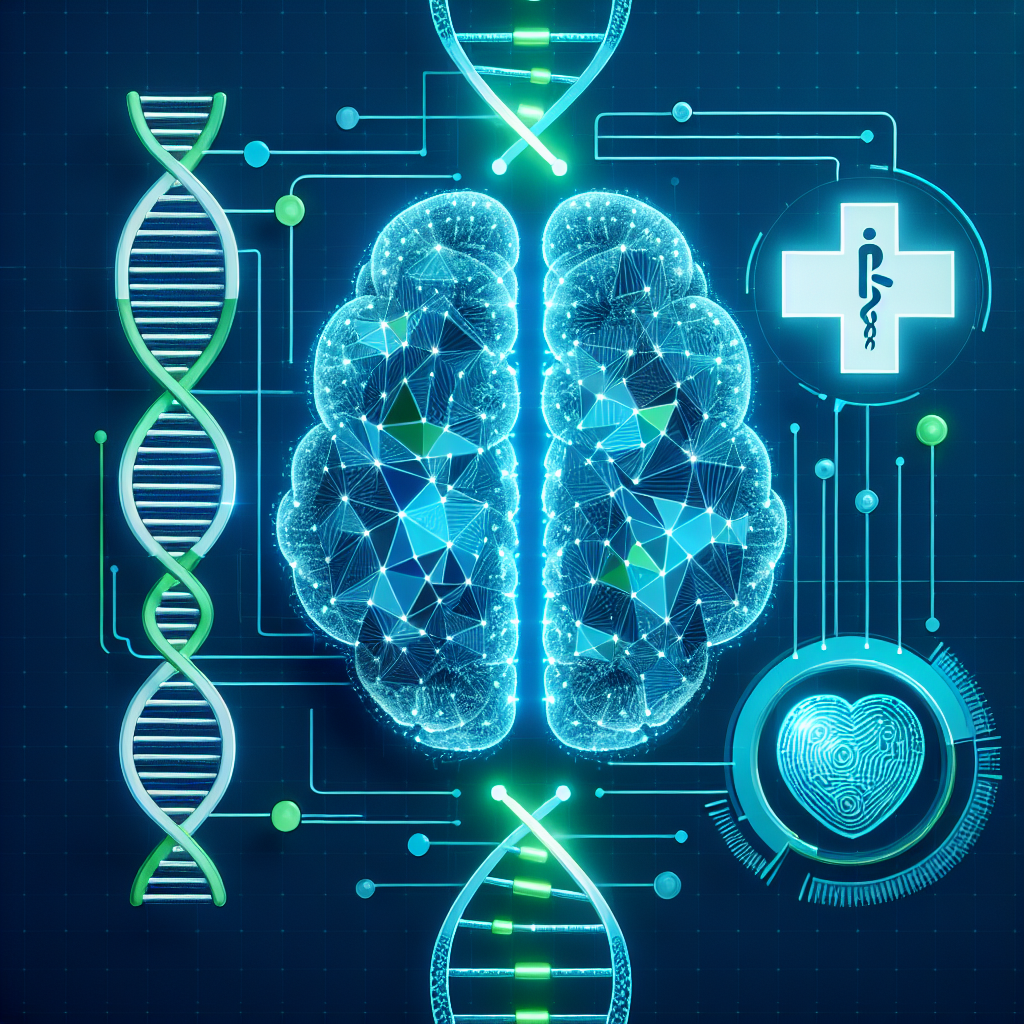Artificial Intelligence (AI) and Machine Learning have revolutionized various industries, including healthcare. In recent years, personalized medicine has gained significant attention as a promising approach to improving patient outcomes. By leveraging AI and machine learning technologies, personalized medicine aims to tailor medical treatment to the individual characteristics of each patient. This not only enhances the effectiveness of treatments but also reduces the likelihood of adverse reactions.
Personalized medicine involves analyzing a patient’s genetic makeup, lifestyle factors, and medical history to develop targeted treatment plans. AI and machine learning play a crucial role in this process by analyzing vast amounts of data to identify patterns and trends that can inform personalized treatment decisions. By combining genetic information with other data sources such as electronic health records, imaging studies, and wearable devices, healthcare providers can gain a comprehensive understanding of each patient’s unique health profile.
One of the key benefits of personalized medicine is the ability to predict disease risk and prevent illnesses before they occur. By using AI algorithms to analyze genetic data and other risk factors, healthcare providers can identify individuals who are at high risk for certain diseases and intervene with preventive measures. For example, AI-powered algorithms can predict the likelihood of developing heart disease or cancer based on genetic markers and lifestyle factors, allowing healthcare providers to recommend lifestyle changes or early screenings to reduce the risk of developing these conditions.
In addition to predicting disease risk, AI and machine learning can also be used to optimize treatment plans for individual patients. By analyzing a patient’s genetic makeup and other health data, AI algorithms can identify the most effective medications and dosages for each individual. This personalized approach to treatment not only improves patient outcomes but also reduces the risk of adverse reactions and side effects.
Another area where AI and machine learning are making significant strides in personalized medicine is in the field of precision oncology. By analyzing a patient’s tumor DNA, AI algorithms can identify specific genetic mutations that drive cancer growth. This information can help oncologists select targeted therapies that are most likely to be effective for each patient, leading to better treatment outcomes and improved survival rates.
Overall, the future of personalized medicine looks promising with the integration of AI and machine learning technologies. These technologies have the potential to transform healthcare by enabling more precise and individualized treatment plans that are tailored to each patient’s unique health profile. As AI continues to evolve and improve, personalized medicine is expected to become more accessible and widely adopted, leading to better patient outcomes and improved quality of care.
FAQs:
Q: What are the benefits of personalized medicine?
A: Personalized medicine offers several benefits, including improved treatment outcomes, reduced risk of adverse reactions, and better disease prevention. By tailoring medical treatments to each individual’s unique health profile, personalized medicine can optimize treatment effectiveness and reduce unnecessary interventions.
Q: How does AI and machine learning contribute to personalized medicine?
A: AI and machine learning technologies play a crucial role in personalized medicine by analyzing vast amounts of data to identify patterns and trends that can inform personalized treatment decisions. By leveraging these technologies, healthcare providers can develop targeted treatment plans that are tailored to each patient’s genetic makeup, lifestyle factors, and medical history.
Q: What are some examples of personalized medicine in practice?
A: Precision oncology is one of the most prominent examples of personalized medicine in practice. By analyzing a patient’s tumor DNA, AI algorithms can identify specific genetic mutations that drive cancer growth and help oncologists select targeted therapies that are most effective for each individual. Other examples include predicting disease risk based on genetic markers and lifestyle factors and optimizing treatment plans for individual patients based on their health data.
Q: How can patients benefit from personalized medicine?
A: Patients can benefit from personalized medicine by receiving more effective treatments that are tailored to their individual health profile. This can lead to improved treatment outcomes, reduced risk of adverse reactions, and better disease prevention. Personalized medicine also empowers patients to take a more active role in their healthcare by providing them with personalized treatment plans that are designed specifically for their needs.

